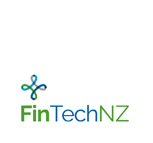Sam Daish, General Manager, Data Innovation at Xero, shares his thoughts on the development of AI in the accounting sector:
Just a few short years ago, in 2015, Xero’s thinking around our platform was a lot simpler than it is now. We were primarily thinking about products, services and features that extend our core accounting platform into adjacent areas.
Fast-forward three years and data is the heart of powering beautiful experiences for our customers – that go beyond accounting. Data-driven solutions are an important growth driver for us. Working with our small businesses and partners, and leveraging machine learning to create smart experiences, are key element of this phase of the journey.
This major evolution in what Xero can offer small businesses and their partners was prompted by the start of our machine learning journey, which we can pinpoint to Xplore 2015. Xplore is one of two hackathon events that Xero runs every year, with an emphasis on freedom, fun and, of course, exploration.
With two days to do anything they wanted, a team of five decided to build Xero’s first machine learning service. The team designed a machine learning solution to automate account code prediction for invoices – just one of more than 30 ideas shared at the event. It caught the attention of our founder, Rod Drury, and he immediately started driving it. Rod has since said that this project put Xero on a new pathway as we discovered a problem we didn’t even realise we had.
This is the beauty of machine learning – it really allows us to start solving problems, large and small, that we weren’t even aware were problems until we were able to start exploring our own abilities.
One example of machine learning we’ve implemented is developing tools to help understand the types of businesses that are using Xero. When you sign up to Xero, you’re only asked for an email address and the country you pay tax. So often, we don’t know very much about the businesses that our customers run or own. This makes it nearly impossible to tailor our services for them and to let them know specific ways that we can help them achieve their objectives.
With machine learning, we can mimic what a personal account manager would do – look at the website of the business to learn more about them. Machine learning can analyse the words used on the website and tag certain attributes and areas of interest based on the language used. So, for example we can understand what industries the business is in, if it’s a retail outlet or ecommerce site, and where it’s located.
This technology helped us learn that our customers are not in a single industry, they are usually in several. For example, many plumbing businesses are not only interested in plumbing projects, but also may need help with their retail operations if they have a store and be interested in regulatory changes for the construction industry as a whole.
The small business space requires tools that are orientated specifically for this domain.
With this in mind, we are creating new datasets specifically for our domain. The industry tags I mentioned above are an example of that.
When we devised our first machine learning service in 2015, it wasn’t ready to release for another 18 months. Clearly this timeframe is far from ideal, but we will never be able to reduce the process length from idea to product to only a month or two, because we need our customers’ input. We need to see how customers react to the initial product and work out how we can improve it to make it easier for our customers to interact with. The right interface and engineering can take longer to build than the machine learning, but it’s worth it.
We have, however, made several changes since launching our first machine learning model. We’ve made investments in our own capacity – from no resource to more than 30 people dedicated to the machine learning space in the past couple of years. These teams don’t just work on one idea, we have many ideas progressing in parallel – we’re placing a series of bets and getting iterative improvements for customers as well as exploring some bigger ideas.
An example of how machine learning and our customer focus come together is the email-to-bills functionality that we previewed at Xerocon Atlanta. This optional technology will enable the user to forward a PDF bill from any supplier to their Xero account, where a draft bill will be automatically created and populated using text extraction. Not only are we developing machine learning tools to identify which figures are the total, which text field is the supplier name and so on, we’re also building techniques so the software can learn from its mistakes and is more likely to be accurate the next time.
Small business owners often don’t bother entering their bills into the system because of how time consuming it can be. By not doing so, they miss out on the value of understanding their cash flow position – essentially, when they can pay their bills. Using technology such as email-to-bills means all of Xero’s reporting tools suddenly become more useful and more accurate. Plus, accountants’ ability to offer meaningful advice increases drastically as they’re better able to assess the position of the company. Clearly this is a great opportunity to combine strong design with machine learning to create a beautiful business experience.
We’re still in the testing phase, with the first product due to roll out next month. But functionalities such as these are making a real difference to our customers’ lives. Through iterative design and machine learning our beta testing group is now reporting a time saving of 25% when creating and editing a bill. And bills are just the beginning. Any automation that saves our small business owners time and improves reporting accuracy is worthwhile and worth exploring according to the Xero mentality.





